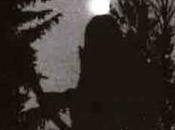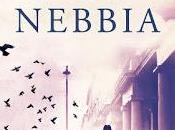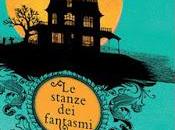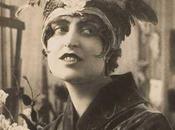
In occasione del bicentenario della nascita di uno dei più grandi narratori dell’umanità, Charles Dickens, non vorrei cadere nelle solite semplificazioni scolastiche e parlare dell’inventore del “romanzo sociale”. Dickens non può essere segregato in una categoria solo perché opere come The Adventures of Oliver Twist, David Copperfield e Hard Times affrontano tematiche “sociali” attraverso i protagonisti delle stesse. Un artista va oltre le categorie e Dickens non fa eccezione. Da The Posthumous Papers of the Pickwick Club fino all’incompiuto The Mystery of Edwin Drood lo scrittore di Portsmouth ha attraversato diversi stili, generi e, a dimostrazione di questo, rendo omaggio alla sua grande abilità cronachistica riportando una pagina tratta dal suo Pictures from Italy, un diario di un viaggio in Italia che non è stato preso molto in considerazione da noi (forse perché descrive con una certa schiettezza gli usi e i costumi nostrani…).
marcovignologargini
**************************************************************************
Pictures from Italy, by Charles Dickens, Chapter XI – A Rapid Diorama, 1846
There is one extraordinary feature in the real life of Naples, at which we may take a glance before we go – the Lotteries.
They prevail in most parts of Italy, but are particularly obvious, in their effects and influences, here. They are drawn every Saturday. They bring an immense revenue to the Government; and diffuse a taste for gambling among the poorest of the poor, which is very comfortable to the coffers of the State, and very ruinous to themselves. The lowest stake is one grain; less than a farthing. One hundred numbers – from one to a hundred, inclusive – are put into a box. Five are drawn. Those are the prizes. I buy three numbers. If one of them come up, I win a small prize. If two, some hundreds of times my stake. If three, three thousand five hundred times my stake. I stake (or play as they call it) what I can upon my numbers, and buy what numbers I please. The amount I play, I pay at the lottery office, where I purchase the ticket; and it is stated on the ticket itself.
Every lottery office keeps a printed book, an Universal Lottery Diviner, where every possible accident and circumstance is provided for, and has a number against it. For instance, let us take two carlini – about sevenpence. On our way to the lottery office, we run against a black man. When we get there, we say gravely, ‘The Diviner.’ It is handed over the counter, as a serious matter of business. We look at black man. Such a number. ‘Give us that.’ We look at running against a person in the street. ‘Give us that. ’ We look at the name of the street itself. ‘Give us that.’ Now, we have our three numbers.
If the roof of the theatre of San Carlo were to fall in, so many people would play upon the numbers attached to such an accident in the Diviner, that the Government would soon close those numbers, and decline to run the risk of losing any more upon them. This often happens. Not long ago, when there was a fire in the King’s Palace, there was such a desperate run on fire, and king, and palace, that further stakes on the numbers attached to those words in the Golden Book were forbidden. Every accident or event, is supposed, by the ignorant populace, to be a revelation to the beholder, or party concerned, in connection with the lottery. Certain people who have a talent for dreaming fortunately, are much sought after; and there are some priests who are constantly favoured with visions of the lucky numbers.
I heard of a horse running away with a man, and dashing him down, dead, at the corner of a street. Pursuing the horse with incredible speed, was another man, who ran so fast, that he came up, immediately after the accident. He threw himself upon his knees beside the unfortunate rider, and clasped his hand with an expression of the wildest grief. ‘If you have life,’ he said, ‘speak one word to me! If you have one gasp of breath left, mention your age for Heaven’s sake, that I may play that number in the lottery.’
Nella vita di Napoli vi è un elemento stupefacente, sul quale conviene soffermarsi un attimo: il gioco del lotto.
È diffuso in gran parte dell’Italia ma trova qui, per l’importanza che ha e per gli effetti che produce, il suo naturale luogo d’elezione. L’estrazione avviene ogni sabato. Il gioco del lotto garantisce allo Stato introiti immensi e diffonde fra i poverissimi un gusto per l’azzardo che, mentre giova a riempire le casse dell’erario, rovina loro del tutto. La giocata minima è un grano, meno di un nostro farthing. In una cassetta si mettono cento numeri che vanno dall’uno al cento compreso. Se ne estraggono cinque, che sono i numeri vincenti. Compro tre numeri. Se ne ‘esce’ uno, vinco un premio esiguo; se ne escono due, vinco una somma pari a qualche centinaio di volte la posta; se ne escono tre, tremilacinquecento volte la posta. Punto (o, come dicono qui, «gioco») quello che posso sui miei numeri, e compro i numeri che voglio. Pago la puntata al banco del lotto, dove si acquista il biglietto che reca scritta l’entità della puntata stessa.
In ogni banco del lotto si trova un libro, una specie di «Divinatore Universale del Lotto», che contiene tutti i casi e tutte le circostanze possibili, corredati ciascuno di un numero corrispondente. Immaginiamo di fare una puntata di due carlini (circa sette pence] e di imbatterci, mentre ci rechiamo al botteghino del lotto, in un negro. Una volta arrivati, diciamo con aria grave: «Il Divinatore». Ce lo porgono dal banco, con l’aria di chi sa di trattare un affare di grande importanza. Cerchiamo la voce «negro». Vi corrisponde un certo numero. «Datemi questo». Cerchiamo «imbattersi in qualcuno per strada». «Datemi questo». Cerchiamo perfino il nome della strada. «Datemi questo». E così, abbiamo i nostri tre numeri.
Se crollasse il tetto del San Carlo, sarebbero talmente in tanti a giocare i numeri che nel Divinatore corrispondono a un simile avvenimento, che il Governo vieterebbe subito di puntare su codesti numeri, per non correre il rischio di rimetterci. Non accade di rado. Non molto tempo fa si verificò un incendio a Palazzo Reale e tutti corsero a giocarsi «il fuoco», «il re» e «il palazzo», tanto che ad un certo punto si dovettero sospendere le scommesse sui numeri che nel Libro Aureo corrispondono a tali parole. Il popolino ignorante crede che ogni caso, ogni avvenimento, sia una specie di visione tanto per chi vi assiste che per chi vi prende parte, e che abbia un rapporto diretto col gioco del lotto. Vi sono delle persone, ricercate da tutti, che per i sogni fortunati hanno un vero talento, e dei preti a cui capita abitualmente di ricevere i numeri fausti nelle loro visioni.
Mi raccontarono la storia di un cavallo imbizzarrito che ad un angolo di strada aveva scaraventato giù un uomo, lasciandolo moribondo. Il cavallo era a sua volta inseguito da un uomo che procedeva a velocità tale che si trovò sul luogo della disgrazia immediatamente dopo che questa si era verificata. Costui si gettò in ginocchio presso lo sfortunato cavaliere e gli afferrò la mano con l’espressione più afflitta di questo mondo. «Se vi è ancora vita in voi», disse, «ditemi una sola parola! Se vi resta un fiato di voce ditemi, per amor di Dio, quanti anni avete, affinché io possa giocarmi questo numero al lotto!».
Charles Dickens, Impressioni di Napoli, traduzione di Stefano Manferlotti, Colonnese, Napoli, 2005,







